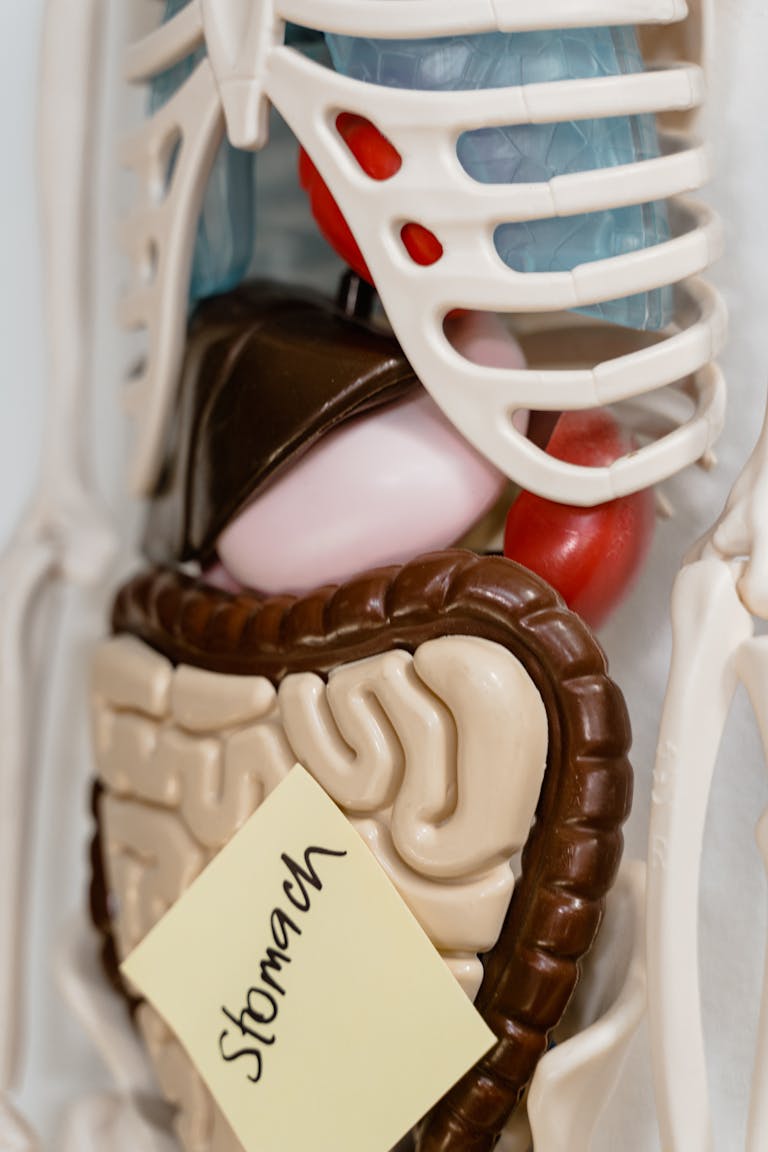The Mind-Body Connection: How Mental Health Affects Physical Health
Introduction
The fundamental idea of the mind-body link demonstrates the close relationship between our physical and mental well-being. According to recent studies, there is a substantial positive correlation between mental and physical well-being. This article evaluates the relationship between mental and physical health, its scientific foundation, and offers methods for enhancing both.

Understanding the Mind-Body Connection
The relationship between our ideas, feelings, and physical state is known as the “mind-body connection.” This relationship suggests that physical issues can have an impact on our mental state and that our mental health can directly affect our physical health. Many medical traditions, such as Ayurveda and traditional Chinese medicine, have recognized this idea for centuries. Discoveries in modern science are starting to shed light on the neurological and molecular mechanisms underlying this association.
Biological Mechanisms
Studies show that the mind-body link is mediated by several biological systems, including:
- Neurotransmitters and Hormones: Serotonin and dopamine, for example, are important neurotransmitters that regulate mood and bodily functions. Stress chemicals such as cortisol can set off bodily reactions that have an impact on one’s health (Juruena, 2014).
- Immune System: Chronic stress and depression can weaken the immune system, making the body more susceptible to illnesses (Cohen, Janicki-Deverts, & Miller, 2007).
- Autonomic Nervous System: This system regulates physiological processes that are not voluntary. According to Thayer, Åhs, Fredrikson, Sollers, & Wager (2012), stress can cause the sympathetic nervous system to become activated, which can result in physical symptoms including hypertension and an elevated heart rate.
How Mental Health Affects Physical Health
Mental health conditions including anxiety, sadness, and long-term stress can have a significant impact on one’s physical well-being. The following are some ways that physical and mental health are related:
1. Cardiovascular Health
Research on cardiovascular health has demonstrated that mental health issues can raise one’s chance of developing cardiovascular diseases. For example, there is a correlation between increased risk of heart disease and stroke with depression and anxiety. According to research in the Journal of the American College of Cardiology, depression increases the risk of coronary artery disease in individuals (Goldston & Baillie, 2008).
2. Immune Function
The immune system can be suppressed by long-term stress and mental health issues, leaving people more susceptible to infections and illnesses. According to a study published in Psychosomatic Medicine, people who experience ongoing stress have weakened immune systems, which raises their risk of disease (Kiecolt-Glaser, McGuire, Robles, & Glaser, 2002).
3. Gastrointestinal Health
The relationship between gastrointestinal and mental health is highlighted by the gut-brain axis. Irritable bowel syndrome (IBS) and other gastrointestinal illnesses can be made worse by mental health conditions. Stress and worry have been shown in gastroenterology research to aggravate IBS symptoms and have an adverse effect on gut health (Mayer, 2011).
4. Pain Perception
Pain perception can be influenced by mental health. Chronic pain is frequently reported at higher levels among people who suffer from depression and anxiety. Psychological variables may increase the experience of pain, which can exacerbate the debilitating effects of chronic pain problems, according to a study published in the Journal of Pain (Gatchel, Peng, Peters, Fuchs, & Turk, 2007).
5. Sleep Quality
The quality of sleep is greatly impacted by mental health. Insomnia and other sleep disorders are frequently linked to anxiety and depression. A vicious cycle is created when insufficient sleep exacerbates mental health issues. The bidirectional association between sleep and mental health has been demonstrated by research published in Sleep Medicine Reviews (Baglioni, Battagliese, Feige, Spiegelhalder, Nissen, Voderholzer, & Riemann, 2011).
Strategies to Improve Both Mental and Physical Health
Considering how closely mental and physical health are related, it is critical to implement practices that enhance total well-being. The following are some methods based on evidence:
1. Mindfulness and Meditation
It has been demonstrated that mindfulness techniques, like meditation, lower stress and promote both mental and physical health. A study in JAMA Internal Medicine found that mindfulness meditation can reduce symptoms of anxiety, depression, and pain (Goyal, Singh, Sibinga, Gould, Rowland-Seymour, Sharma, & Haythornthwaite, 2014).
2. Regular Exercise
Engaging in physical activity is an effective way to enhance mental and physical well-being. Exercise can lower the risk of chronic diseases and release endorphins, which improve mood. Regular exercise has been shown by the American Psychological Association to reduce symptoms of anxiety and depression (Salmon, 2001).
3. Healthy Diet
Eating well is essential for preserving both physical and emotional well-being. Eat a diet high in fruits, vegetables, lean meats, and healthy fats to boost brain function and lower your chance of developing chronic illnesses. A nutritious diet can enhance mood and cognitive function, according to a study published in Nutritional Neuroscience (Sarris, Logan, Akbaraly, Amminger, Balanza-Martinez, Freeman, & Jacka, 2015).
4. Adequate Sleep
Getting enough sleep is essential for both physical and emotional well-being. Maintaining a regular sleep schedule and setting up a relaxing environment are examples of good sleep hygiene practices that can improve the quality of your sleep. According to research on sleep health, getting enough sleep is crucial for both maintaining physical and mental health (Hirshkowitz, Whiton, Albert, Alessi, Bruni, DonCarlos, & Adams Hillard, 2015).
5. Stress Management
The negative effects of stress on the body and mind can be minimized by practicing effective stress management strategies including yoga, progressive muscle relaxation, and deep breathing exercises. According to a study published in Health Psychology, stress management techniques can improve general health (Chiesa & Serretti, 2009).
6. Social Connections
A supportive network and strong social ties can mitigate the damaging effects of stress and enhance mental health. Better general health is a result of social interaction and tight connection maintenance. Social support has been linked to reduced stress and improved physical health outcomes, according to research published in PLOS ONE (Cohen, Janicki-Deverts, & Miller, 2007).
7. Professional Help
Therapy and treatment for mental health illnesses can be obtained by seeking the assistance of mental health specialists, such as therapists and counsellors. Other treatment modalities, such as cognitive-behavioral therapy (CBT), are useful in symptom management and mental health enhancement. As an essential part of general health, the National Institute of Mental Health promotes professional mental health care (NIMH, 2018).
Conclusion
The significance of holistic health is emphasized by the potent idea of the mind-body link. Those who are aware of the connections between mental and physical health might take proactive measures to enhance their general well-being. People can live a balanced and healthy life by implementing practices that support both physical and mental well-being, such as mindfulness, exercise, a good diet, enough sleep, stress management, social support, and professional assistance.
References
Baglioni, C., Battagliese, G., Feige, B., Spiegelhalder, K., Nissen, C., Voderholzer, U., & Riemann, D. (2011). Insomnia as a predictor of depression: A meta-analytic evaluation of longitudinal epidemiological studies. Journal of Affective Disorders, 135(1-3), 10-19.
Chiesa, A., & Serretti, A. (2009). Mindfulness-based stress reduction for stress management in healthy people: A review and meta-analysis. Journal of Alternative and Complementary Medicine, 15(5), 593-600.
Cohen, S., Janicki-Deverts, D., & Miller, G. E. (2007). Psychological stress and disease. JAMA, 298(14), 1685-1687.
Gatchel, R. J., Peng, Y. B., Peters, M. L., Fuchs, P. N., & Turk, D. C. (2007). The biopsychosocial approach to chronic pain: Scientific advances and future directions. Psychological Bulletin, 133(4), 581-624.
Goldston, K., & Baillie, A. J. (2008). Depression and coronary heart disease: A review of the epidemiological evidence, explanatory mechanisms and management approaches. Clinical Psychology Review, 28(2), 288-306.
Goyal, M., Singh, S., Sibinga, E. M., Gould, N. F., Rowland-Seymour, A., Sharma, R., & Haythornthwaite, J. A. (2014). Meditation programs for psychological stress and well-being: A systematic review and meta-analysis. JAMA Internal Medicine, 174(3), 357-368.
Hirshkowitz, M., Whiton, K., Albert, S. M., Alessi, C., Bruni, O., DonCarlos, L., & Adams Hillard, P. J. (2015). National Sleep Foundation’s sleep time duration recommendations: Methodology and results summary. Sleep Health, 1(1), 40-43.
Kiecolt-Glaser, J. K., McGuire, L., Robles, T. F., & Glaser, R. (2002). Emotions, morbidity, and mortality: New perspectives from psychoneuroimmunology. Annual Review of Psychology, 53(1), 83-107.
Mayer, E. A. (2011). Gut feelings: The emerging biology of gut-brain communication. Nature Reviews Neuroscience, 12(8), 453-466.
NIMH. (2018). Depression Basics. Retrieved from https://www.nimh.nih.gov/health/publications/depression/index.shtml
Salmon, P. (2001). Effects of physical exercise on anxiety, depression, and sensitivity to stress: A unifying theory. Clinical Psychology Review, 21(1), 33-61.
Sarris, J., Logan, A. C., Akbaraly, T. N., Amminger, G. P., Balanza-Martinez, V., Freeman, M. P., & Jacka, F. N. (2015). Nutritional medicine as mainstream in psychiatry. The Lancet Psychiatry, 2(3), 271-274.
Thayer, J. F., Åhs, F., Fredrikson, M., Sollers, J. J., & Wager, T. D. (2012). A meta-analysis of heart rate variability and neuroimaging studies: Implications for heart rate variability as a marker of stress and health. Neuroscience & Biobehavioral Reviews, 36(2), 747-756.






